Associated Press
Tue, July 2, 2024
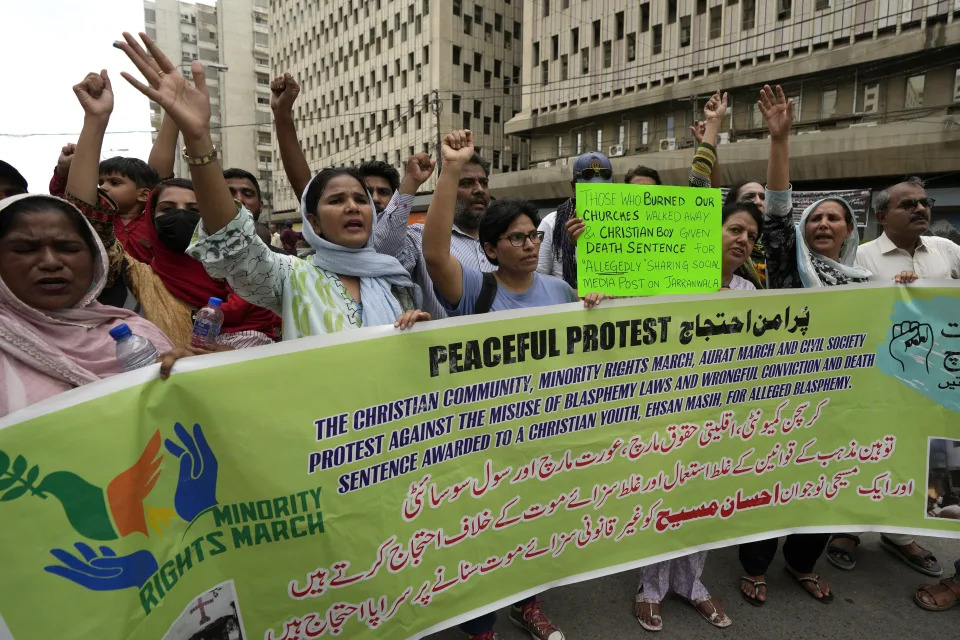
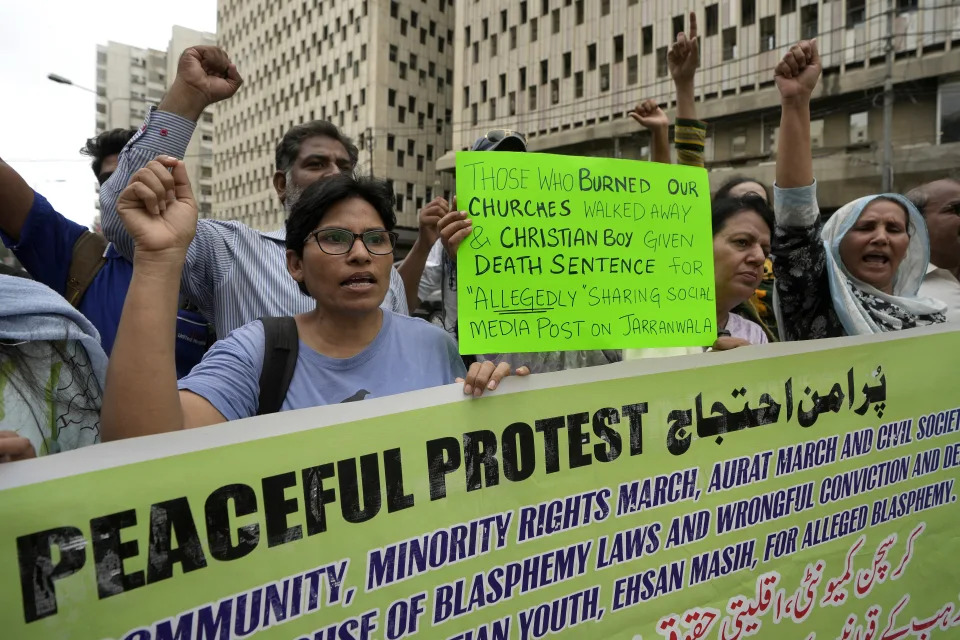
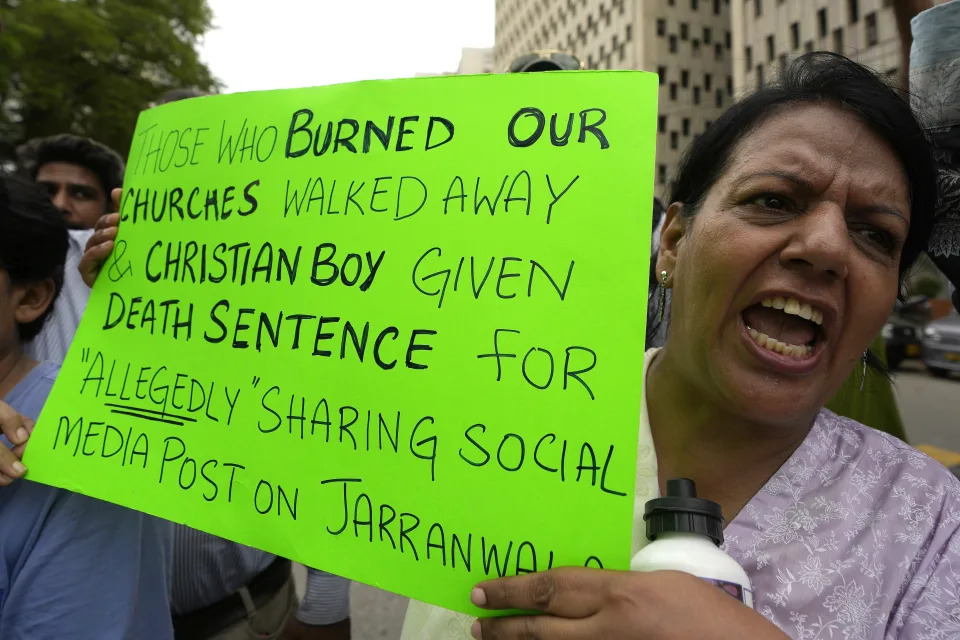
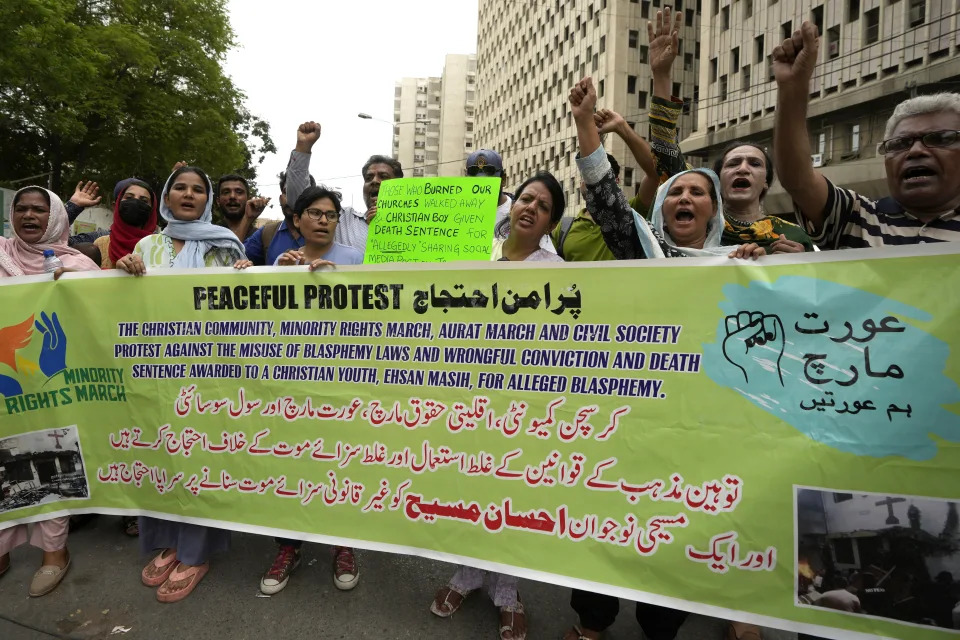
Pakistan Blasphemy
Members from Pakistan's minority community and civil society chant slogans during a demonstration against the conviction of a Christian man on charges of blasphemy and condemn the country's blasphemy laws, Tuesday, July 2, 2024. A court had awarded a death sentence to Ehsan Shan after finding him guilty of sharing "hateful content against Muslims on social media after one of the worst mob attacks on Christians in the eastern Punjab province last year.
(AP Photo/Fareed Khan)
KARACHI, Pakistan (AP) — Dozens of members from Pakistan's civil society rallied on Tuesday in the southern port city of Karachi against the death sentence handed down to a Christian man on blasphemy charges, nearly a year after one of the worst mob attacks on Christians in the country.
Several Christians also joined the rally which comes a day after a court in Sahiwal in the Punjab province announced the death sentence to Ehsan Shan after finding him guilty of sharing “hateful content" against Muslims on social media.
Shan's lawyer Khurram Shahzad said on Monday he will appeal the verdict.
He was arrested in August 2023 after groups of Muslim men burned dozens of homes and churches in the city of Jaranwala in Punjab after some residents claimed they saw two Christian men desecrating pages from Islam’s holy book, the Quran. The two men were later arrested.
Though Shan was not party to the desecration, he was accused of reposting the defaced pages of the Quran on his TikTok account.
At Tuesday's rally in Karachi, a Christian leader Luke Victor, called for Shah's release.
He also demanded action against those who were involved in burning churches and homes of Christians in Jaranwala.
Blasphemy accusations are common in Pakistan. Under the country’s blasphemy laws, anyone found guilty of insulting Islam or Islamic religious figures can be sentenced to death. While authorities have yet to carry out a death sentence for blasphemy, often a mere accusation can cause riots and incite mobs to violence, lynching and killings.
Pakistani Christian man given death penalty for posting ‘hateful content’ against Muslims
Maroosha Muzaffar
Tue, July 2, 2024
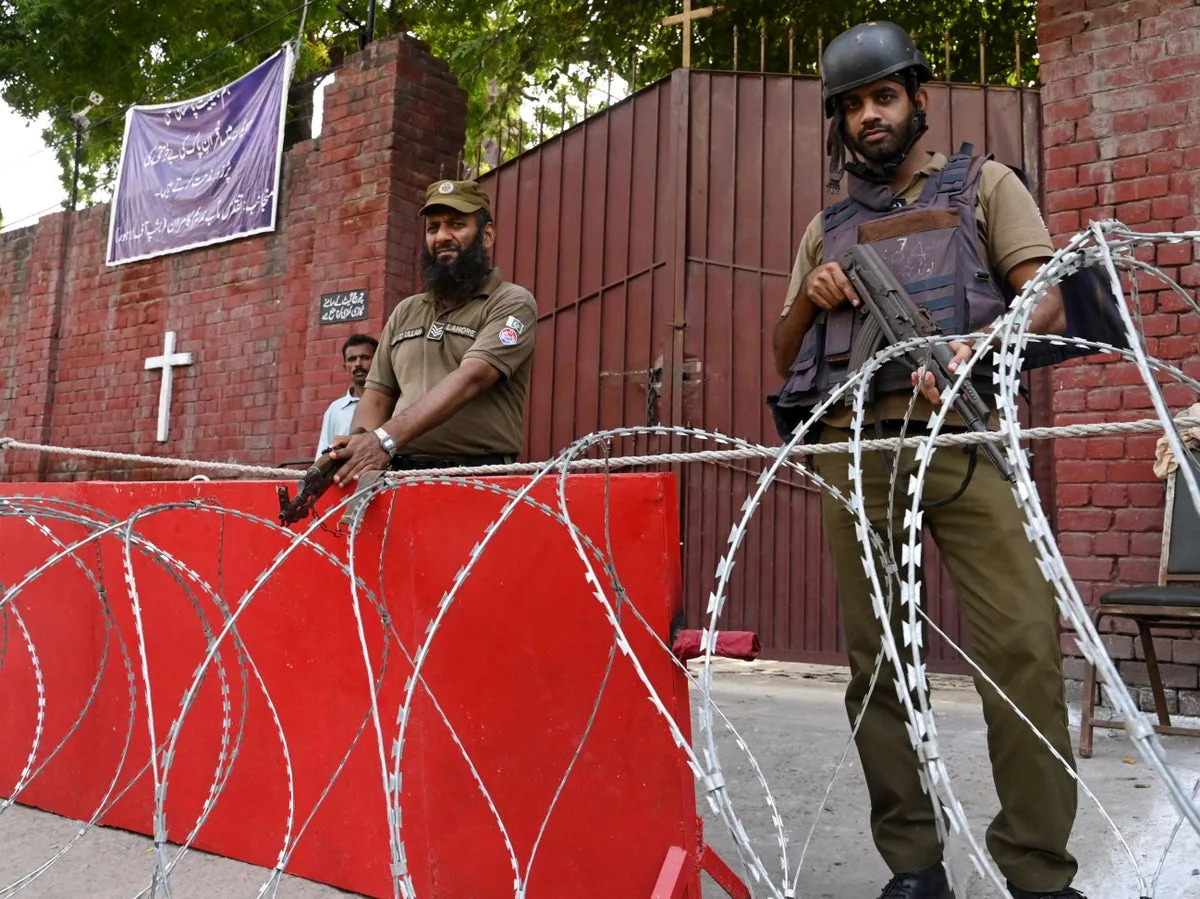
Pakistani Christian man given death penalty for posting ‘hateful content’ against Muslims
A Pakistani court has sentenced a Christian man to death for posting defaced pages of the Quran on TikTok last year.
A mob attacked Christians in eastern Punjab province, burning their homes and churches, after two Christian men were accused of desecrating the Quran last year. The men were arrested for allegedly possessing pages of the Muslim scripture tainted with derogatory remarks scribbled in red.
Ehsan Shan wasn’t involved in the desecration but was accused of reposting the defaced pages on his TikTok account, his lawyer Khurram Shahzad told The Associated Press on Monday.
Shan is set to appeal the death sentence handed down on Saturday by a court in the city of Sahiwal in Punjab, the lawyer said.
Amir Farooq, the police officer who arrested Shan, said he shared “hateful content at a sensitive time when authorities were already struggling to contain the violence”.
Blasphemy is punishable by death in Pakistan.
Critics argue that the blasphemy laws are often misused to target religious minorities.
Although blasphemy convictions are common in Pakistan, no one has ever been executed.
Most convictions are thrown out on appeal by higher courts but mobs have in the past lynched suspects before they could be put on trial.
In the wake of last year’s attack on Christians in Punjab, the local government launched a probe while police arrested over 100 people. But none of the suspected attackers have been convicted so far even though local media at the time described it as one of the deadliest attacks on the minority community in the country.
The nearly 100 Christians who lost their homes in the attack were each promised 2m rupees (£5,680) in compensation but it was not known if they had been paid yet.
Additional reporting by agencies.


No comments:
Post a Comment